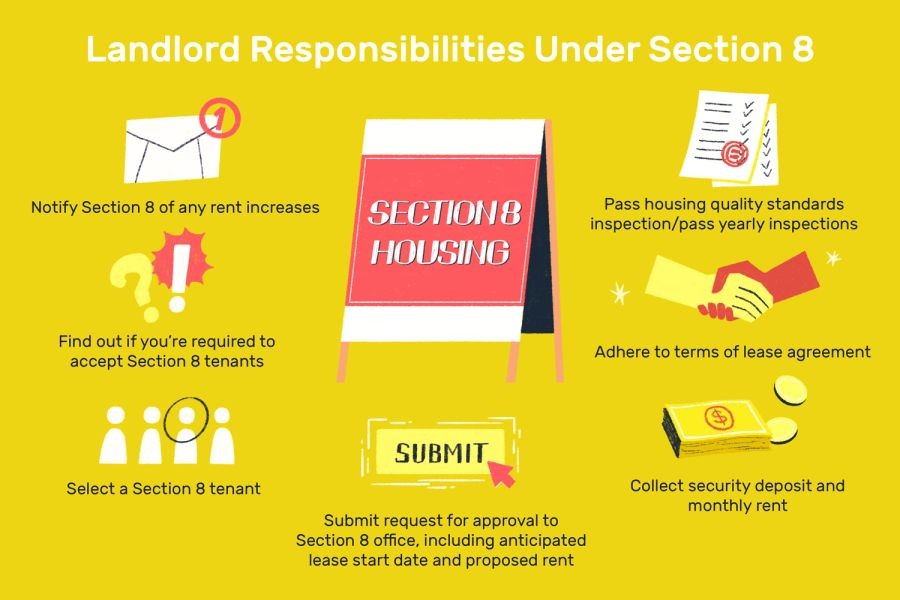In New Zealand, being a landlord involves more than just collecting rent. With the dynamic shifts in the real estate market and evolving legislative frameworks, understanding landlord responsibilities is crucial for ensuring compliance and maximizing investment returns. This article delves into the intricacies of landlord duties, providing data-backed insights and expert analysis to guide financial advisors in advising their clients effectively.
The Significance of Landlord Responsibilities in New Zealand
Landlords in New Zealand must navigate a complex landscape of tenant rights, property management, and legal obligations. The Residential Tenancies Act 1986, along with recent amendments, outlines these responsibilities, which are essential for maintaining healthy landlord-tenant relationships and avoiding legal pitfalls. According to Stats NZ, rental prices have increased by an average of 5.7% per year, highlighting the importance of understanding these responsibilities to leverage rental yields effectively.
Key Landlord Responsibilities
Understanding the core obligations of a landlord is crucial for compliance and tenant satisfaction. Here are some of the primary responsibilities landlords in New Zealand must adhere to:
- Property Maintenance: Landlords must ensure that the property is in a habitable condition, addressing necessary repairs promptly. Failure to maintain the property can lead to legal disputes and financial penalties.
- Compliance with Health and Safety Standards: The Healthy Homes Standards require properties to meet specific criteria related to heating, insulation, and ventilation.
- Tenancy Agreements: All agreements must be in writing, clearly stating the terms and conditions of the rental arrangement.
- Bond Management: Landlords must lodge any bond payments with Tenancy Services within 23 working days.
Case Study: Effective Landlord Practices in Auckland
Problem: An Auckland-based landlord, John, faced frequent tenant turnover and property damage, which impacted his rental yield significantly.
Action: To address these issues, John implemented a comprehensive tenant screening process and invested in regular property maintenance. He also ensured compliance with the Healthy Homes Standards, which improved tenant satisfaction.
Result: Within a year, John's tenant retention rate improved by 30%, and his property maintenance costs decreased by 20%, leading to increased profitability.
Takeaway: Effective communication, property upkeep, and adherence to legal standards are vital for successful property management in New Zealand.
Data-Driven Insights and Industry Analysis
Recent data from the Reserve Bank of New Zealand indicates that the housing market remains robust, with a steady demand for rental properties. However, financial advisors must be aware of potential regulatory changes that could impact rental income and property values.
One emerging trend is the increasing focus on sustainability. With environmental consciousness rising, properties meeting eco-friendly standards are becoming more attractive to tenants. Advisors should guide clients to invest in energy-efficient upgrades to enhance property value and marketability.
Common Myths and Mistakes in Landlord Responsibilities
Myth: "Landlords can evict tenants at will." Reality: Evictions must follow a legal process, with valid reasons and proper notice periods as per the Residential Tenancies Act.
Myth: "Rent increases can be implemented anytime." Reality: Rent can only be increased once every 12 months, and landlords must provide at least 60 days' notice.
Myth: "Property upgrades are unnecessary expenses." Reality: Strategic upgrades can increase rental yield and property value, offering long-term financial benefits.
Pros and Cons of Being a Landlord in New Zealand
Pros:
- Rental Income: Provides a steady cash flow, especially in high-demand areas like Auckland and Wellington.
- Property Appreciation: Potential for capital gains as property values increase over time.
- Leverage Opportunities: Ability to use rental income to finance additional property investments.
Cons:
- Regulatory Challenges: Navigating complex legal requirements can be time-consuming and costly.
- Market Volatility: Economic shifts can impact property values and rental demand.
- Maintenance Costs: Ongoing expenses for property upkeep and compliance with health standards.
Future Trends and Predictions
The future of rental properties in New Zealand is poised for transformation. By 2026, it's predicted that policy updates will emphasize sustainable housing, requiring landlords to adopt green technologies. According to a report by NZ Property Investors’ Federation, properties with energy-efficient features could see a 15-20% increase in rental value.
Conclusion
Understanding landlord responsibilities in New Zealand is not just about compliance; it's a strategic approach to maximizing investment returns. By staying informed about legal obligations, market trends, and tenant needs, landlords can enhance their property value while fostering positive tenant relationships. Financial advisors play a crucial role in guiding clients through this landscape, ensuring informed decisions that align with long-term financial goals.
What are your thoughts on the future of the rental market in New Zealand? Share your insights in the comments below!
Related Search Queries
- Landlord rights and responsibilities NZ
- Healthy Homes Standards compliance
- Rental property management best practices
- New Zealand property market trends
- Sustainable housing investments
People Also Ask (FAQ)
- How does being a landlord impact property investment in New Zealand? Being a landlord provides steady rental income and potential property appreciation, but it requires navigating complex regulations and maintenance responsibilities.
- What are the biggest misconceptions about landlord responsibilities in NZ? A common myth is that landlords can evict tenants at will, while in reality, evictions require a legal process with valid reasons.
- What are the best strategies for managing rental properties in NZ? Effective strategies include thorough tenant screening, regular property maintenance, and compliance with the Healthy Homes Standards.































